Key-messages delivered during the plenary sessions

Each conference day started with a plenary session of an hour and a half, during which experts spoke on a given topic. Thus a whole variety of issues were discussed, such as climate change and drought tolerance, climate change and hybrid selection, market developments and the European production systems, cropping innovations and sustainable intensification, and increasing sorghum-based food use. Each plenary session included up-to-date presentations outlining the major trends that would influence the future of sorghum and its research in the coming years. The sessions also provided an opportunity for long exchanges with the audience, during which participants were able to ask questions directly to the experts present on stage.
 « Climate change calls for urgent resilience and tolerance to drought. »
« Climate change calls for urgent resilience and tolerance to drought. »
During the first plenary session, Nathalie Noblet-Ducoudré (with the Paris-Saclay University, France) reviewed climate changes to date and spoke about the developments that we can expect in the coming years. “GIEC projections indicate that the 1.5°C warming will likely be reached by 2030 and that there is a strong likelihood of it exceeding 2°C by the end of this century”, she pointed out. In her opinion, we should expect more intense heat waves throughout the world, as a result, as well as more frequent, longer, droughts, heavier rainfalls, and new weather hazard combinations. The corollary of all that: emerging risks for the production of, and access to, agricultural commodities. «Agriculture, forestry, and the other land uses contributed to 22 percent of total GES in 2019, but they can equally contribute to the mitigation thereof to a significant extent», she explained in her presentation titled “Where Does Agriculture Stand in the Current Climate Context?”.

Nathalie Noblet-Ducoudré
(Paris-Saclay University, France)
 « Climate change requires faster and more reactive breeding programmes. »
« Climate change requires faster and more reactive breeding programmes. »
Graeme Hammer (University of Queensland, Australia) and Laura Mayor (Corteva Agriscience, U.S.) – speakers during the second plenary session – explained how by combining crop simulation models and field trials one can optimize biological knowledge to improve crops.
Climate change means that breeding programmes need to provide new varieties faster, so that agriculture can adapt. Sometimes, one has to even consider breeding for environments that do not yet exist. This is why forecasting methods have become increasingly important to breeders.
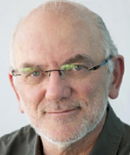
Graeme Hammer
(University of Queensland, Australia)

Laura Mayor
(Corteva Agriscience, U.S.)
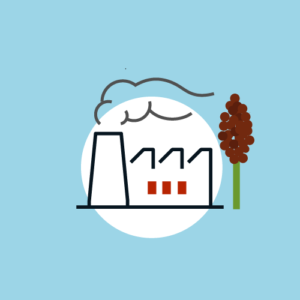 « E.U. Market Needs and Production System Developments Widen Opportunities for Sorghum. »
« E.U. Market Needs and Production System Developments Widen Opportunities for Sorghum. »
E.U. experts Valérie Brochet (FNPSMS, France), Boris Parent (INRAE, France), and David Pot (CIRAD, France) gave an overview of the European value chain, pointing out that sorghum holds great prospects for breeders, seed producers, farmers, processors, and customers. To them, it is critical that sorghum research and production develop and R&D investments increase, in order to generate a more diversified supply, capable of meeting the increasing consumer demands.
In response to the rapidly-changing climate and socio-economic conditions worldwide, the experts also underlined the need for active cooperation between Europe and Africa in terms of research on sorghum production and use, in order to encourage innovation and facilitate the crop’s adjustment to various climate and soil contexts.
Valér ie Brochet
ie Brochet
(FNPSMS, France)

Boris Parent
(INRAE, France)

David Pot
(CIRAD, France)
 « Evolving food habits and needs worldwide increase demand for sorghum as a food ingredient. »
« Evolving food habits and needs worldwide increase demand for sorghum as a food ingredient. »
The third plenary session brought together researchers and operators in the agrifood industry: Kwaku Gyebi Duodu (University of Pretoria, South Africa), Monia Caramma (Switzerland), and Earl Roemer (Nu Life Market, United States), who discussed sorghum-based food products and the evolution of their consumption globally. What they have found is that the consumption of sorghum as a food cereal is increasing, because sorghum meets certain diet criteria, presents new market opportunities, and responds to the interest that consumers have for innovate products.
Within that context, sorghum-based production systems that lead to quality food products and added value for the farmer – while mitigating climate change by carbon sequestration – hold promise for the future.
 Kwaku Gyebi Duodu
Kwaku Gyebi Duodu
(University of Pretoria, South Africa),
Monia Caram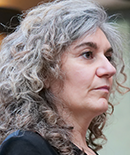 ma
ma
(Switzerland)
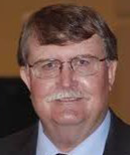 Earl Roemer
Earl Roemer
(Nu Life Market, United States)
 « Crop-growing Innovation and Sustainable Intensification Are Needed to Maximize Sorghum Performance in Various Environments. »
« Crop-growing Innovation and Sustainable Intensification Are Needed to Maximize Sorghum Performance in Various Environments. »
Two professors took the floor during the fourth round table of the conference: James Schnable (University of Nebraska, Lincoln, United States) and Dilys S. MacCarthy (University of Ghana). The two researchers discussed three main topics: harnessing existing phenotypical traits to generate crop-growing innovation; defining the ideotype of sorghum, and combining quantitative genomics with more profound 2D and 3D trials in order to characterize the plants’ response to stress.
The speakers also discussed sustainability intensification practices as a necessary tool in the optimisation of production and ecosystemic services in East and Central Africa agricultural systems.

James Schnable
(University of Nebraska, Lincoln, United States)
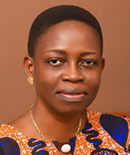
Dilys S. MacCarthy
(University of Ghana)
Continue ?
Next World Sorghum Conference: Texas, 2026

Strengthening Links and Building New Networks












